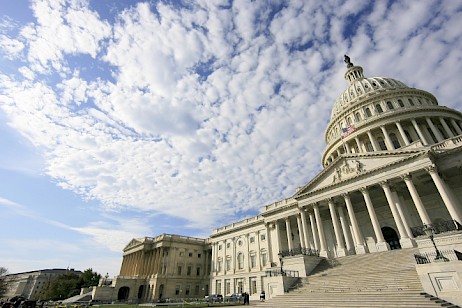Guest Blog By: Peter Vitiello, PhD - Assistant Scientist, Environmental Influences on Health and Disease Group, Sanford Research
Science advocates across 65 countries will participate in over 600 coordinated marches to highlight the influence of research on our society and promote a call of support for the research community. Some skeptics think these organized events can paint scientists as a partisan special interest group in polarized political climates. Regardless of your opinion on the value of these marches, it is undeniable that many scientists have a renewed desire to voice their opinion by building long-standing relationships with their local communities and representatives in government.
There are several easy ways to communicate with your local representatives. Social media outlets such as Twitter can quickly engage groups of individuals and comments are monitored by staffers. However, the impact of social media activism can depend on your number of followers. Although email may be a preferred method, writing a letter to your representative’s local office is often more effective because it guarantees that it will be read. The most effective thing to do is call their local office because it is the most timely approach and staffers will document and communicate your message. Just be sure to be kind and thank the staffers answering the phones since they may be fielding nonstop phone calls for eight hours every day.
While this strategy is an excellent way to register your message, it doesn’t necessarily communicate the value of your opinion as a scientist. An excellent way to articulate information about yourself and your professional opinion is to communicate with people in your community, since most of them have never met a single scientist. I was recently able to interact with several community organizations to discuss the influence of research on our society. One group was from the Osher Lifelong Learning Institute which provides learning opportunities for people over 50 years old. Another group was the Lions Club comprised of local business leaders. These networking organizations (local chambers, policy advocacy groups) can also serve as a gateway to local representatives. I found these dynamic forums to be an excellent way to overcome and important stigmatic barrier, allowing community members to interact with local scientists.
As researchers, we are constantly inundated with communicating our ideas and findings to the rest of the scientific community but often neglect ways to interact with people and leaders in our own backyards. The best way to be heard is to take ownership of being a community leader, a responsibility that should be embraced by every scientist.
— Published